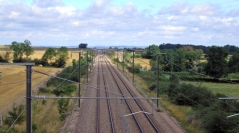

 Naturae
2017 (10) - Pages 1-22
Naturae
2017 (10) - Pages 1-22The “Trame verte et bleue” is a french policy that the Ministry of the Environment in France started in 2007 to protect and restore a national ecological network. This network, composed by cores and corridors, is designed at different territorial levels and particularly at the regional one, with a plan – named Schéma régional de cohérence écologique (SRCE). For this purpose, fundamental and operational knowledge are both needed. This work presents the knowledge gaps and the actions for knowledge acquisitions that all the SRCE listed. All those elements have been classified according to their subject matter to have an overview of the whole needs at the national scale. The results show that knowledge about species, natural habitats or ecosystems is really needed by the majority of the regions in France. Both data (repartition, abundance, etc.) and functional knowledge (dispersal distances, movement behavior, etc.) are lacking. The lacks also concern new knowledge to be acquired and existing knowledge to be better shared and broadcast. Those knowledge gaps limited the capacity of the regions to design their ecological network. The regions also encountered difficulties in qualifying the ecological functionality of their network and in identifying obstacles. Many particular topics are also highlighted by the SRCE because of their knowledge gaps, such as linear transport infrastructures, climate change, exotic species, bird migration corridors or even light pollution. This work gives an overview of the knowledge requirements to design, protect and restore ecological networks in France. It can be useful for data producers, researchers or organisms that could launch call for projects.
Ecological network, corridor, reservoir of biodiversity, public policy, knowledge gap.